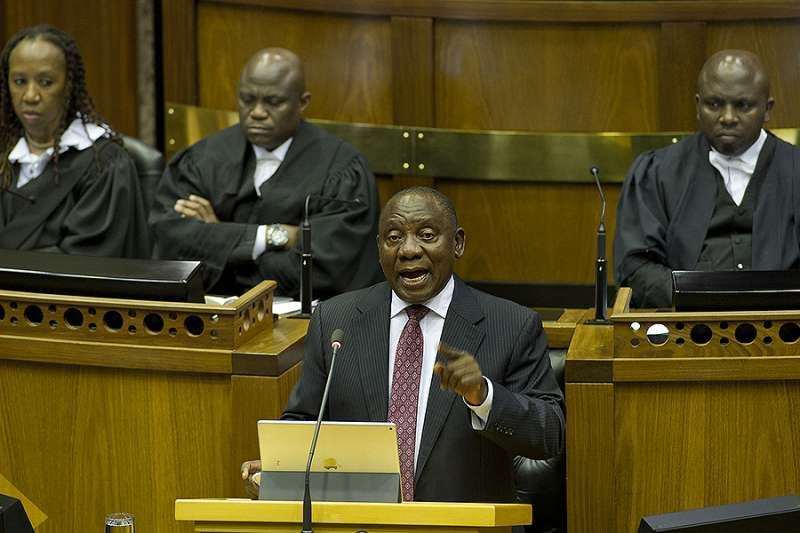The first State of the Nation address by South Africa's new president, Cyril Ramaphosa, has been welcomed by one of the country's Jesuit priests for its call to create communities of trust and to dialogue about problems facing South Africa.
Ramaphosa assumed office Feb. 15, following the resignation of Jacob Zuma, whose tenure was marked by numerous allegations of corruption allegations and fostered a decline in morality in public life. South Africa's bishops were quick to welcome Zuma's choice to resign.
In his State of the Nation address Feb. 16, Ramaphosa pledged to “turn the tide of corruption in our public institutions. We are determined to build a society defined by decency and integrity, that does not tolerate the plunder of public resources, nor the theft by corporate criminals of the hard-earned savings of ordinary people.”
Ramaphosa also discussed land redistribution and job creation.
Fr. Peter-John Pearson wrote at Spotlight Africa Feb. 19 that Ramaphosa's speech echoed “poignant issues outlined in Catholic Social Teaching.”
Writing at the ministry of the Jesuit Institute South Africa, the priest cited Ven. Pius XII and Cardinal Basil Hume, Archbishop of Westminster from 1976 to 1999, in stressing “importance of restoring and building civic relationships thus strengthening civil society.”
“Ramaphosa called for the reestablishment of communities of trust in the face of diminishing trust in public institutions and weakened confidence in leaders. He underlined that it is everyone’s task to create a common destiny,” Fr. Pearson noted.
He cited St. John Paul II's teaching on solidarity, and said Ramaphosa's “commitment to undoing past injustices and present inequalities is key to establishing the common good.”
“His further commitment to the free basic services which supports 3.5 million indigent households and continuing the payment of 17 million grants to the poorest of the poor, resonates with the fundamental option for the poor as does his promise to deal effectively with those who have plundered the resources of the nation and those who have established a culture of cronyism and corruption.”
The priest also considered it important how often Ramaphosa “promised to hold summits on a variety of important and often contested issues ranging from investment to jobs.”
“While some decried this emphasis as an entrenchment of a culture of talking at the risk of it diminishing action: from a CST perspective it undergirds the importance of dialogue as a powerful way of ensuring the inclusion of usually excluded voices in the process of developing public policy,” Fr. Pearson stated.
“In a country plagued with a history of identity politics and a growing exclusion of the poor from any meaningful decision making about their own futures, creating spaces for dialogue and thus building incrementally those communities of trust, is critical for any sustainable life together,” he added.
The priest concluded suggesting that this is the first time that “there seems to be a spirit of hope in South Africa” in several years.
“A solid indication of pursuing the quest for justice, enhancing a dialogical culture together with appropriate processes that implement such dialogues, and the generation of hope, are indeed the benchmarks of CST and a sign of the times in South Africa.”

